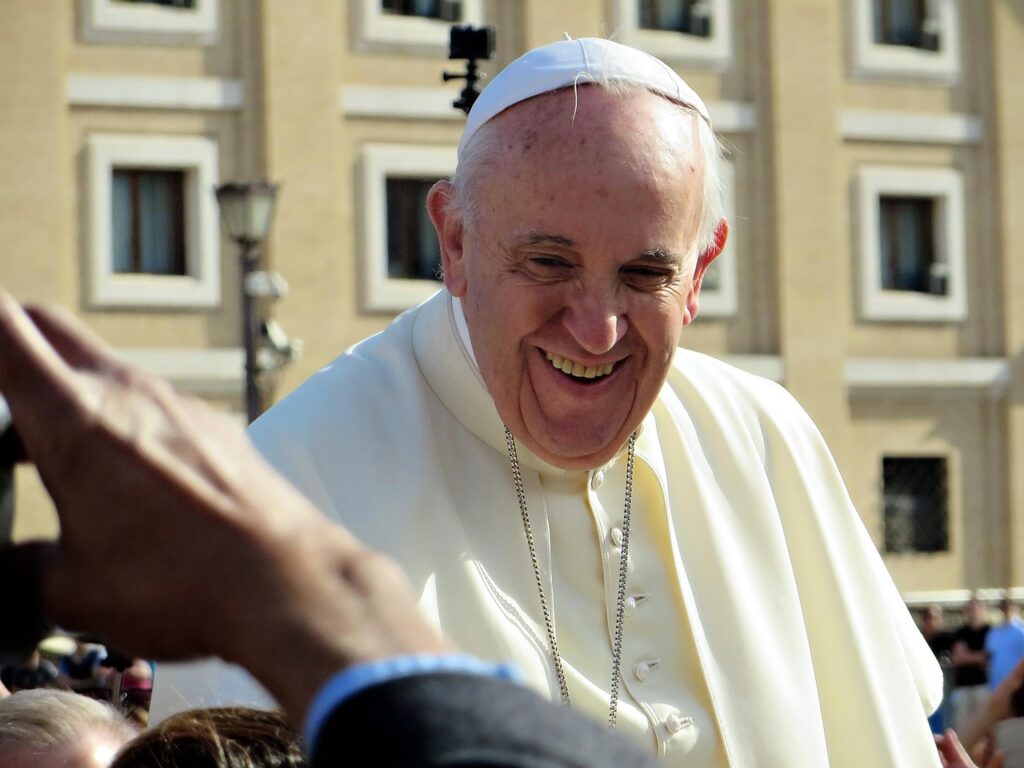On April 21, 2025—Easter Monday—the world stood still as news broke of the passing of His Holiness Pope Francis. At the age of 88, after serving more than twelve years as the head of the Roman Catholic Church, he departed this life peacefully at the Vatican, following complications related to a stroke and heart failure. His death, confirmed by Vatican physicians, marks the end of a transformative era in modern Church history.
The passing of Pope Francis is not just a moment of sorrow for the Catholic Church—it is a moment of reflection for all people of faith and conscience. In his lifetime, Jorge Mario Bergoglio, born in Buenos Aires, Argentina, rose to become a spiritual shepherd for over 1.3 billion Catholics worldwide. Yet his influence extended far beyond those within Church walls. He was a global symbol of compassion, humility, and inclusive faith.
The First of Many Things
Pope Francis was a man of firsts. He was the first pope from Latin America, the first Jesuit to ascend to the papacy, and the first to take the name Francis—after Saint Francis of Assisi, the patron saint of the poor. His papal name foreshadowed the path he would take: one deeply rooted in service to the marginalized, the voiceless, and the forgotten.
From his earliest days in the Vatican, Pope Francis signaled a new tone. He chose to reside in the modest Vatican guesthouse instead of the lavish Apostolic Palace. He often rode in a simple Ford Focus rather than the traditional papal limousine. These choices, while symbolic, revealed his sincere desire to lead with humility and transparency—a shepherd close to his flock.
A Voice for the Voiceless
Throughout his papacy, Pope Francis prioritized the struggles of the poor, the refugee, the imprisoned, and the displaced. He became an outspoken advocate on issues of social justice, climate change, and economic inequality. His 2015 encyclical Laudato Si’, which urged humanity to take moral responsibility for the Earth, remains one of the most influential papal documents in recent memory.
He was often described as “the people’s pope” because he brought attention to those on the peripheries of society. He washed the feet of prisoners on Holy Thursday, embraced the disfigured and the ill, and continually emphasized that the Church must be a “field hospital after battle,” meeting people where they are in their suffering.
A Bridge Between Worlds
He also worked to open doors within the Church itself—welcoming conversations around complex social issues such as divorce, LGBTQ+ Catholics, and gender roles, even when his positions were met with resistance. Pope Francis may not have resolved all tensions, but he was committed to the journey of dialogue, discernment, and mercy.
A Papacy of Simplicity and Depth
Pope Francis’s homilies, addresses, and social media presence reached millions with messages of hope, joy, and challenge. He made theology accessible without watering down its depth. His tweets became viral moments of pastoral care—short, often poetic invitations to love more deeply, forgive more readily, and live more simply.
In his final years, his health declined but his voice never wavered. He continued to call for peace in regions plagued by war, solidarity in the face of economic hardship, and empathy in a world too often divided by fear. Even as speculation about his resignation circulated, he remained steadfast, choosing to serve until his final breath.
A Global Outpouring of Grief
Following the announcement of his death, tributes poured in from every corner of the globe. Religious leaders, political figures, artists, educators, and countless ordinary people shared how Pope Francis touched their lives. Celebrities remembered him not for his status, but for his humanity—his humor, his kindness, and his refusal to be distant or detached.
Catholics, Christians, and those of other beliefs mourn the loss of a leader who made holiness feel approachable and love feel radical. His funeral, scheduled for Saturday with public viewing beginning Wednesday, is expected to draw millions of mourners, both in person and online, as the world prepares to say its final farewell.
A Lasting Legacy
Pope Francis leaves behind a legacy that will echo for generations. His leadership model—rooted in humility, guided by mercy, and driven by service—offers a counter-narrative to power for its own sake. He reminded the world that spiritual authority is not measured by titles or tradition but by the ability to heal wounds and inspire hearts.
His writings, decisions, and gestures will continue to shape the Church’s future. His call to be a “Church of the poor for the poor,” his invitation to live simply and act boldly, and his challenge to love beyond borders will remain guiding lights for both Church leaders and everyday believers.
In Gratitude and Prayer
As we grieve, we also give thanks—for a life lived generously and for a pontiff who made faith feel real and relevant in the 21st century. His Holiness Pope Francis modeled what it means to walk the Gospel path, even when it leads into uncomfortable or uncharted territory.
To our Catholic brothers and sisters around the world, and to all Christians who found strength in his voice and vision, we offer our heartfelt condolences. May you find comfort in your shared faith, in the memory of his witness, and in the promise of resurrection that Pope Francis so faithfully proclaimed.
May his soul rest in eternal peace, and may his legacy continue to inspire all of us to choose compassion, justice, and love above all.
Photo: https://pixabay.com/pt/photos/papa-francisco-p%C3%BAblico-vaticano-1784304/

